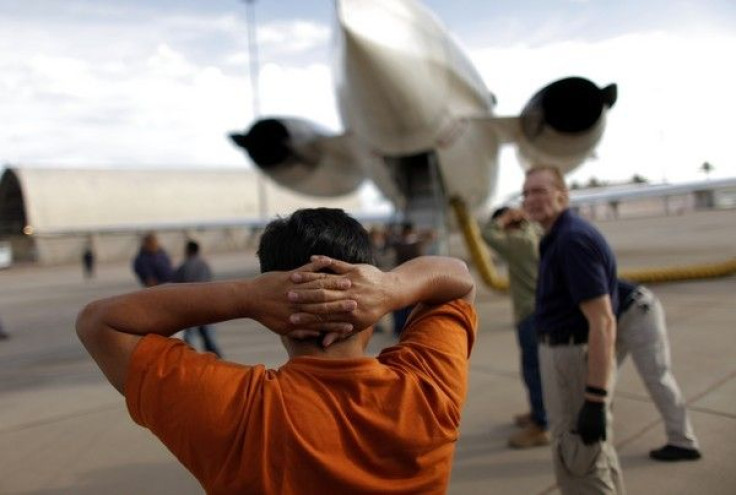'Secure Communities' Immigration Program Triggers Uproar at Federal Hearings

Hearings scheduled by the Obama administration to defend an embattled immigration enforcement tool known as Secure Communities have led to protests and walkouts, a sign of the program's enduring unpopularity amongst immigration advocates.
The program essentially enlists local law enforcement to enforce immigration laws, compelling police officers to enter the information of people they arrest into a federal database, where it can then be matched against records kept by the Department of Homeland Security. Critics of Secure Communities, who range from traditional immigration advocacy groups to law enforcement to governors who sought to pull out of the program, contend that the program ends up deporting nonviolent offenders who pose no threat to public safety.
John Morton, director of Immigration and Customs Enforcement, convened a 21-member task force to look into such complaints. The task force began holding hearings, but instead of orderly question and answer sessions they got sometimes boisterous protests, with attendees banging drums, organizing walkouts and vocally denouncing Secure Communities. More than 160 organizations sent a letter calling for the task force to disband and labeling Immigration and Customs Enforcement a rogue program, The New York Times reported.
Chuck Wexler, executive director of the Police Research Forum and the task force's chairman, acknowledged the grievances.
This program at its heart is about serious offenders, Wexler said. I don't think that there is any question that a number of people caught up in the system don't fit the criteria of a serious offender.
In a sign of the the program's centrality to President Barack Obama's immigration enforcement strategy, the Department of Homeland Security recently mandated participation in Secure Communities. The moved served to override objections from state and local officials, and reversed the Obama administration's previous assertion that states could opt out or suspend participation in the program.
Obama has weathered intense criticism for his approach, with immigration advocates arguing that heavy handed enforcement -- Obama has presided over more deportations than any other president in history -- fails to distinguish between violent and nonviolent offenders. In response, Obama announced last week that he would grant a reprieve for about 300,000 immigrants facing deportations.
© Copyright IBTimes 2024. All rights reserved.











